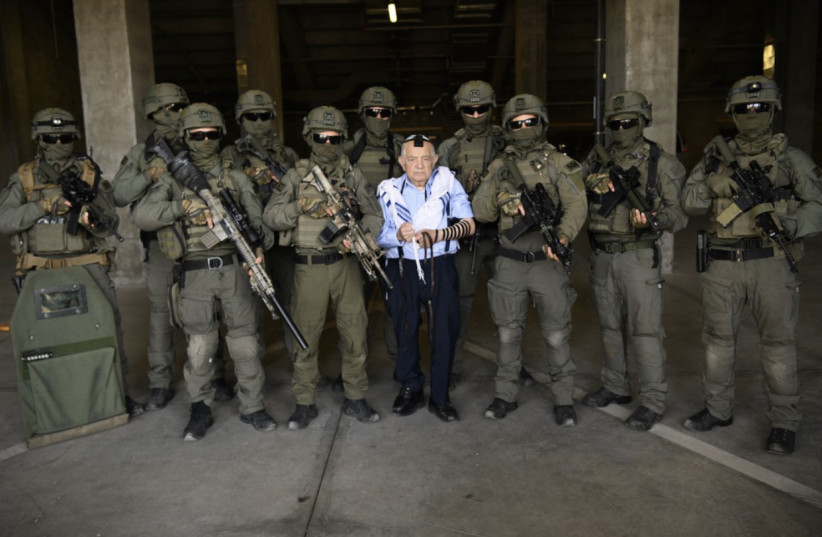A new campaign is set to put the stories of Holocaust survivors - along with their second and third-generation family members - in the spotlight in digital spaces in order to illustrate the need to keep the memories of the Nazi genocide of European Jewry alive.
Called Our Holocaust Story, the campaign was the work of The Conference on Jewish Material Claims Against Germany (Claims Conference), an organization that seeks to secure compensation and restitution for Holocaust survivors whose property was stolen by the Nazis.
The initiative was launched on April 18, which was marked as Holocaust Remembrance Day.
What is the Our Holocaust Story campaign?
The campaign shows Holocaust survivors and their families sharing stories of survival and persecution in the form of short videos, all while pledging to never forget the stories in question.
This is especially important given the declining number of Holocaust survivors worldwide, many of whom never even had children.

It also comes after a Claims Conference survey in the Netherlands found that a majority (53%) of respondents thought that the Holocaust never impacted their country, and some (12%) thought the entire Holocaust was either a myth or an exaggeration.
Some of the survivors struggled with telling their stories again, no matter how many times they had to do it.
"I survived the Holocaust and I have to tell the story again and again," explained Holocaust survivor Jehuda Lindenblatt. "I was so hungry. If you never experienced hunger, you cannot explain to anyone what it is."
"Each survivor has a poignant and unique story to tell of survival. By passing these stories on within their family, they make certain their story continues and the lessons of the Holocaust are not forgotten."
Gideon Taylor
"Each survivor has a poignant and unique story to tell of survival. By passing these stories on within their family, they make certain their story continues and the lessons of the Holocaust are not forgotten," Clams Conference president Gideon Taylor said in a sentence. "Only then can we truly say, 'never again.'"
Finding new ways to never forget
This initiative is only one of the many new ways of preserving the Holocaust memory and sharing the stories for a new generation.
Hasdei Naomi, an association that gives aid to Holocaust survivors, organized a hackathon that brought intelligence officer cadets and MKs together to develop special technologies that could help preserve Holocaust survivor Tovah Feder’s story. The cadets managed to turn Feder’s story into a WhatsApp conversation that is based on advanced artificial intelligence.
The goal, the organization said, was to develop an educational initiative that would "speak to the younger generation in its language."
In another initiative, the Israel Police has, in recent years, begun adopting Holocaust survivors. Members of Jerusalem’s Border Police units sit down with survivors at least twice a month throughout the year, pushing toward ongoing communication and building connections.
The diplomatic corps has joined the effort as well. The German embassy in Tel Aviv, for instance, has launched a new photography exhibition titled "Humans of the Holocaust," which takes a painful and artistic approach to Holocaust remembrance. It tells the extraordinary stories of 40 Holocaust survivors, as well as the second and third generations, engaging viewers with the human stories behind every photo and helping them imagine the millions of untold stories.
All of these are part of the importance of finding new ways to never forget the Holocaust.
Jpost Editorial contributed to this report.
